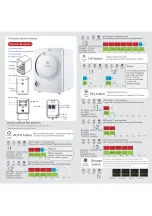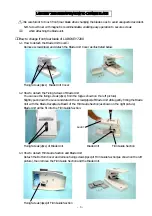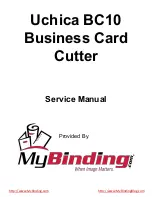
172-65126MA-10 (FLl5/FL21/FL32/FL5-C/FL21-C/FL32-C + BD2) 10 Mar 2017
12
3
5
6
Gasket
Do not pinch gasket
in thread recesses
4
Coat with anti-seize
Gasket Surface
Instructions for Plug/Holder Disassembly and Reassembly
The seal on the threaded plugs/holders found on TLV products is formed by a flat metal
gasket. There are various installation orientations for the gaskets, such as horizontal,
diagonal and downward, and the gasket may be pinched in the thread recesses during
assembly.
Instructions for Disassembly and Reassembly
①
Remove the plug/holder using a tool of
the specified size (distance across flats).
②
The gasket should not be reused. Be
sure to replace it with a new gasket.
③
Clean the gasket surfaces of the
plug/holder and the product body using a
rag and/or cleaning agents, then check to
make sure the surfaces are not scratched
or deformed.
④
Coat both the gasket surface of the
plug/holder and the threads of the
plug/holder with anti-seize, then press
the gasket onto the center of the gasket
surface of the plug/holder, making sure
the anti-seize affixes the gasket tightly to
the plug/holder. Check to make sure the
gasket is not caught in the recesses of
the threads.
⑤
Hold the plug/holder upside down to
make sure that the anti-seize makes the
gasket stick to the plug/holder even
when the plug/holder is held upside
down.
⑥
Screw the plug/holder by hand into the product body while making sure that the
gasket remains tightly affixed to the center of the gasket surface of the plug/holder.
Make sure the entire gasket is making contact with the gasket surface of the product
body. It is important at this point to make sure the gasket is not pinched in the thread
recesses of the plug/holder.
⑦
Tighten the plug/holder to the proper torque.
⑧
Next, begin the supply of steam and check to make sure there is no leakage from the
part just tightened. If there is leakage, immediately close the inlet valve and, if there
is a bypass valve, take the necessary steps to release any residual pressure. After
the surface of the product cools to room temperature, repeat the procedure
beginning from step 1.



































